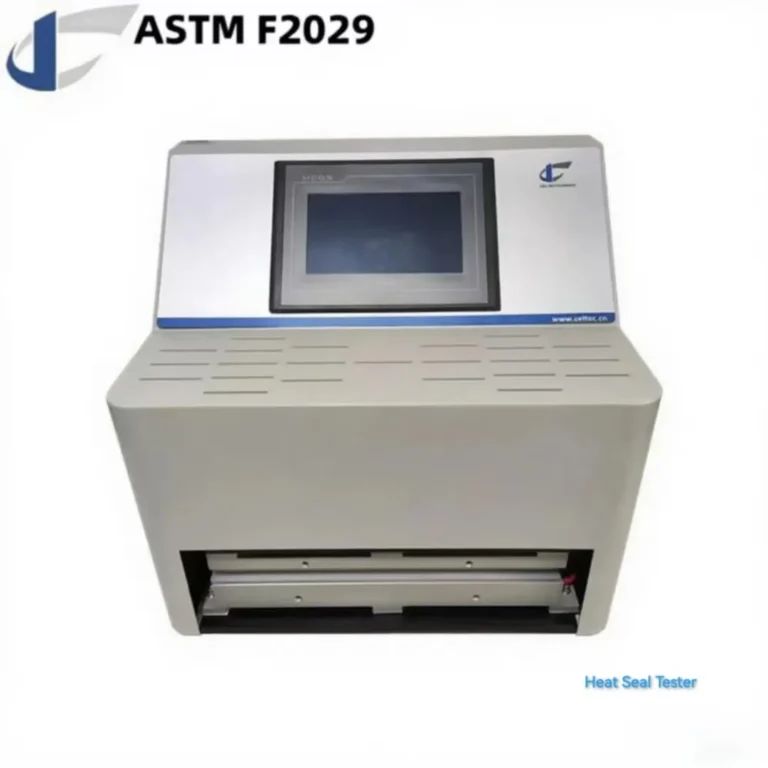Yogurt Cups: Ensuring Quality Through Heat Seal Testing and ASTM F2029 Standards
Yogurt cups are an essential part of the dairy packaging industry, providing both convenience and protection to consumers. However, one critical aspect that determines the safety and shelf life of yogurt products is the quality of the cup’s sealing. The heat seal testing process is vital in assessing the heat seal strength of yogurt cup lids and film seals, ensuring packaging integrity against leakage and contamination. Using standardized methods like ASTM F2029 and advanced equipment such as a laboratory heat sealer, packaging manufacturers can guarantee optimal sealing performance.
Importance of Heat Seal Testing for Yogurt Cups
Seals on yogurt cups must be strong enough to withstand handling, transportation, and storage without compromising product safety. Poor seals can lead to spoilage, contamination, or leakage, which directly affect consumer trust and regulatory compliance.
Heat seal testing evaluates the bonding strength between the lid film and the cup rim. This test simulates real-world stresses to confirm whether the seal can resist pressure and tension during normal use. By ensuring high-quality seals, manufacturers can reduce waste, enhance shelf life, and maintain product freshness.
Standards and Methods: ASTM F2029 and Heat Seal Strength
The ASTM F2029 standard provides a widely recognized method to determine the heat seal strength of flexible packaging materials, including those used in yogurt cup lids. This method involves applying heat and pressure to create a sealed bond and then testing the bond’s mechanical strength.
Key factors controlled during testing include:
Sealing temperature
Sealing pressure
Sealing time
These parameters directly influence the quality of the seal, and deviations can cause weak or inconsistent seals. The standard helps maintain consistency and reliability in heat seal strength testing.
Using Laboratory Heat Sealers for Precise Testing
A laboratory heat sealer plays a crucial role in replicating industrial sealing conditions under controlled environments. The HST-01 Heat Seal Tester by Cell Instruments exemplifies the capabilities needed for accurate heat seal testing of yogurt cups.
The HST-01 offers:
Precise temperature control with deviations within ±0.2℃ to ensure uniform heat application.
Adjustable sealing time from 0.1 seconds to 9999 hours for versatile testing scenarios.
Sealing pressure control between 0.15 and 0.7 MPa to simulate different sealing intensities.
Wide sealing jaws suitable for various film sizes and cup rims.
Features like gas pressure control and integrated safety mechanisms enhance test reliability.

By using such advanced equipment, laboratories can simulate and analyze sealing quality effectively and quickly, producing reproducible results aligned with ASTM F2029 requirements.
Benefits of Reliable Heat Seal Testing in Yogurt Cup Production
Reliable heat seal testing delivers multiple advantages to yogurt cup manufacturers and brands:
Improved product safety: Strong seals prevent contamination and leakage, protecting consumers.
Extended shelf life: Consistent sealing reduces spoilage from air and moisture ingress.
Quality assurance: Meets regulatory and retailer standards, ensuring market acceptance.
Reduced waste: Early detection of sealing issues avoids costly recalls and rejects.
Integrating a robust heat seal testing protocol using the HST-01 tester enables manufacturers to uphold these benefits while optimizing production processes.
Conclusion
Ensuring the integrity of yogurt cups heavily depends on precise heat seal testing guided by standards such as ASTM F2029.
The use of a laboratory heat sealer like Cell Instruments’ HST-01 Heat Seal Tester guarantees that sealing parameters—temperature, pressure, and time—are accurately controlled and monitored.
This results in reliable heat seal strength assessments that safeguard product quality, consumer safety, and brand reputation.
Packaging professionals, quality controllers, and R&D teams in the dairy industry should prioritize implementing standardized heat seal testing to maintain the highest packaging performance standards.
